Home > Artist on Focus
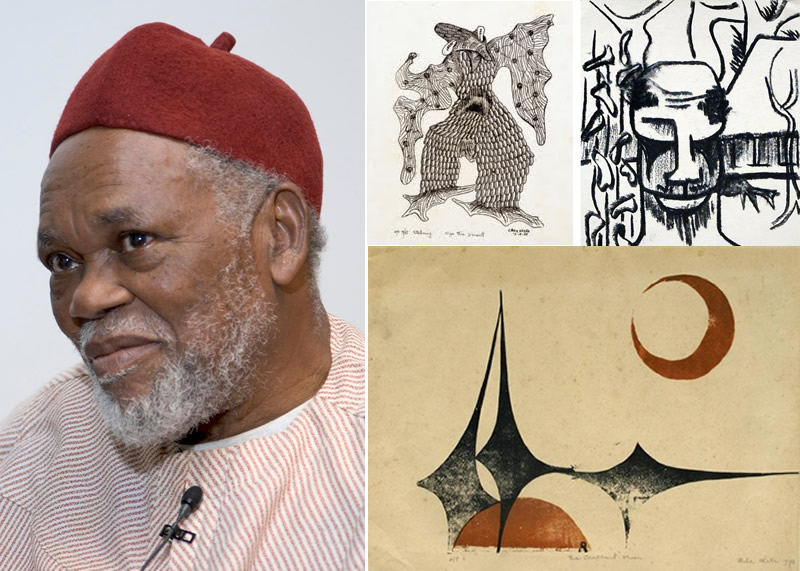
Christopher Uchefuna Okeke was born on 30 April 1933 in Nimo, Njikoka Local Government Area of Anambra State, Nigeria, to Isaac Okonkwo Okeke and Monica Mgboye Okeke (née Okoye). Between 1940 and 1953, he attended St. Peter Claver’s (Primary) School, [Kafanchan], Metropolitan College,[Onitsha], and Bishop Shanahan College, [Orlu, Nigeria|Orl], during which time he had already begun to demonstrate an avid interest in drawing and painting. Before being admitted to read Fine Art at Nigerian College of Arts, Science and Technology, now Ahmadu Bello University, Zaria, Okeke had already exhibited taxidermy work during the Field Society meeting in Jos Museum, participated in the preparation and presentation of Nigerian Drawings and Paintings with Bernard Fagg as curator and had a solo exhibition of drawings and paintings, in Jos and Kaduna with Sir Ahmadu Bello in attendance.
As an undergraduate in 1958, Okeke together with [Yusuf Grillo], [Bruce Onobrakpeya], [Demas Nwoko] and others, inaugurated the Zaria Art Society. In that same year he opened a cultural centre at 30 Ibadan Street, Kafanchan, which later became the Asele Institute, Nimo, where among other cultural activities a part of the Smithsonian Institution-sponsored educational film Nigerian Art - Kindred Spirits was shot in 1996.
In the early 1970s when he was appointed lecturer and acting head of Fine Arts Department at the [University of Nigeria, Nsukka], he reviewed the entire course programme introducing new courses and research into Igbo Uli art tradition. In 1973, he also designed the first course programme of the Department of Fine and Applied Arts, Institute of Management and Technology, [Enugu], and initiated postgraduate courses in the Department of Fine Arts, University of Nigeria, Nsukka.
He the Director of the Institute of African Studies at the University of Nigeria in Nsukka, a visiting Professor to the Department of Creative Arts, University of Port Harcourt, Honorary Deputy Director-General (Africa) of International Biographical Centre, Cambridge, among numerous other engagements with many educational and cultural institutions in different parts of the world.
He inspired many Nigerian artists and Africanist art historians, including some of the world’s avant-garde.
That Okeke carried the Uli experiment beyond the walls of Zaria and stood in the forefront of its transformation into a modern idiom in the 1970s, from the studios at Nsukka was original. He is a father figure in the history of Nigerian modernism.
Okeke died on 5 January 2016 in his native home at Nimo at the age of 82.
Source: wikipedia.org
Uche Okeke

Christopher Uchefuna Okeke was born on 30 April 1933 in Nimo, Njikoka Local Government Area of Anambra State, Nigeria, to Isaac Okonkwo Okeke and Monica Mgboye Okeke (née Okoye). Between 1940 and 1953, he attended St. Peter Claver’s (Primary) School, [Kafanchan], Metropolitan College,[Onitsha], and Bishop Shanahan College, [Orlu, Nigeria|Orl], during which time he had already begun to demonstrate an avid interest in drawing and painting. Before being admitted to read Fine Art at Nigerian College of Arts, Science and Technology, now Ahmadu Bello University, Zaria, Okeke had already exhibited taxidermy work during the Field Society meeting in Jos Museum, participated in the preparation and presentation of Nigerian Drawings and Paintings with Bernard Fagg as curator and had a solo exhibition of drawings and paintings, in Jos and Kaduna with Sir Ahmadu Bello in attendance.
As an undergraduate in 1958, Okeke together with [Yusuf Grillo], [Bruce Onobrakpeya], [Demas Nwoko] and others, inaugurated the Zaria Art Society. In that same year he opened a cultural centre at 30 Ibadan Street, Kafanchan, which later became the Asele Institute, Nimo, where among other cultural activities a part of the Smithsonian Institution-sponsored educational film Nigerian Art - Kindred Spirits was shot in 1996.
In the early 1970s when he was appointed lecturer and acting head of Fine Arts Department at the [University of Nigeria, Nsukka], he reviewed the entire course programme introducing new courses and research into Igbo Uli art tradition. In 1973, he also designed the first course programme of the Department of Fine and Applied Arts, Institute of Management and Technology, [Enugu], and initiated postgraduate courses in the Department of Fine Arts, University of Nigeria, Nsukka.
He the Director of the Institute of African Studies at the University of Nigeria in Nsukka, a visiting Professor to the Department of Creative Arts, University of Port Harcourt, Honorary Deputy Director-General (Africa) of International Biographical Centre, Cambridge, among numerous other engagements with many educational and cultural institutions in different parts of the world.
He inspired many Nigerian artists and Africanist art historians, including some of the world’s avant-garde.
That Okeke carried the Uli experiment beyond the walls of Zaria and stood in the forefront of its transformation into a modern idiom in the 1970s, from the studios at Nsukka was original. He is a father figure in the history of Nigerian modernism.
Okeke died on 5 January 2016 in his native home at Nimo at the age of 82.
Source: wikipedia.org
Artist on Focus
Fortune Anuforo
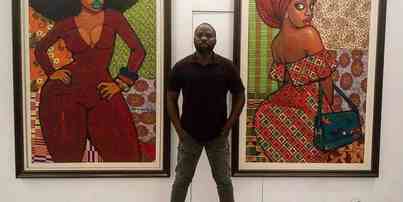
Fortune is a native of Imo State in Nigeria who lives in Lagos State, has an Ordinary National Diploma in fine and applied art with a focus on general art and a Higher National Diploma in painting and...
[Continue reading]
Jonathan Imafidor

Jonathan Imafidor is an artist based in Atlanta, Georgia, with a passion for nature and its influence on people. Born in Uneme-Nekhua, a small rural settlement in Southern Nigeria, Jonathan spent his ...
[Continue reading]
Onyekachukwu Iloanya
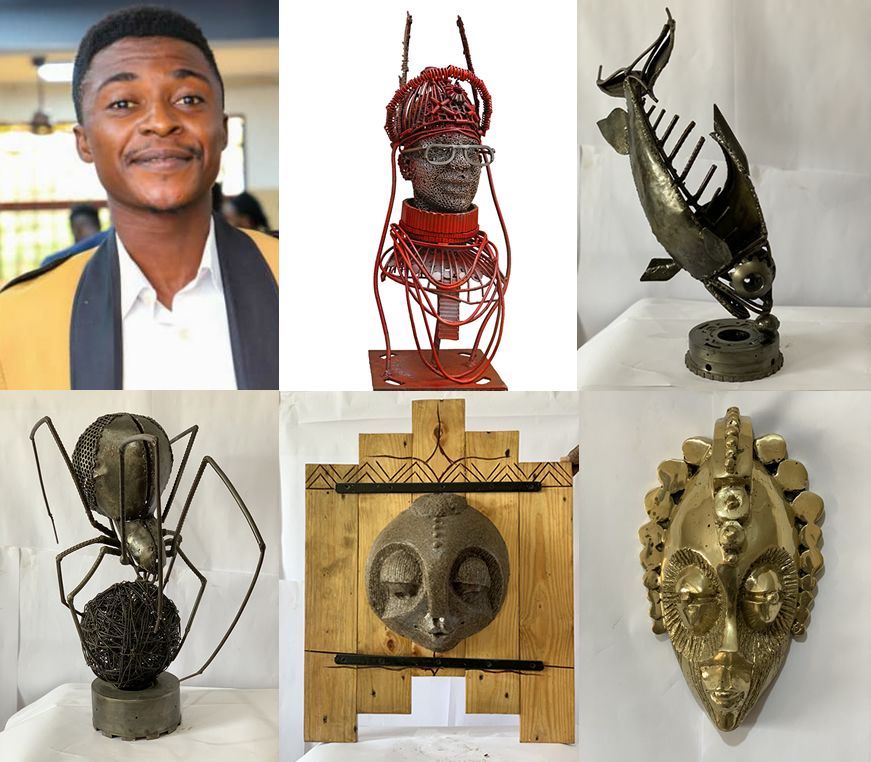
Onyekachukwu Anthony iloanya is a visual Artist. He grew up as a boy in Onitsha, the commercial hub of Anambra State, Nigeria. There he scavenged refuse dump sites to recycle scraps into play toys. Th...
[Continue reading]
Clara Etso Ugbodaga-Ngu
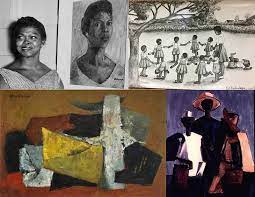
Clara Etso Ugbodaga-Ngu (1921-1996), art educator and artist, was the first Nigerian teacher on the staff of the art department of Nigerian College of Arts, Science & Technology, Zaria (NCAST). Ugboda...
[Continue reading]
Jaachinma Nwade
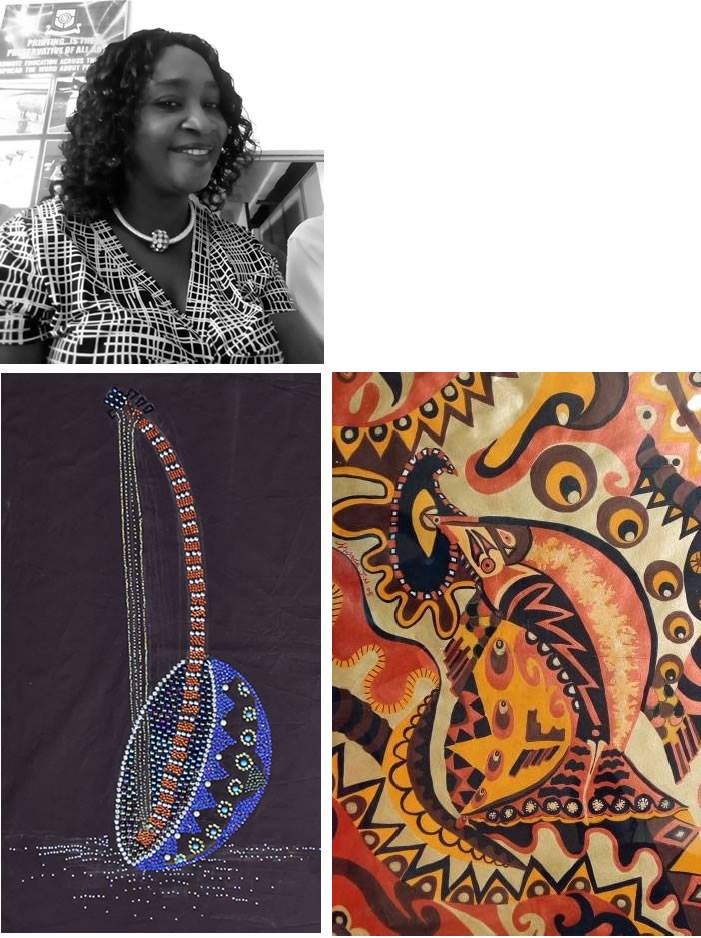
J.N Nwade is a Textile Designer and Lecturer in the Department of Industrial Design, School of Art, Design and Printing, Yaba College of Technology, Yaba, Lagos.
Born 22nd of May 1968,...
[Continue reading]
Olu Ajayi
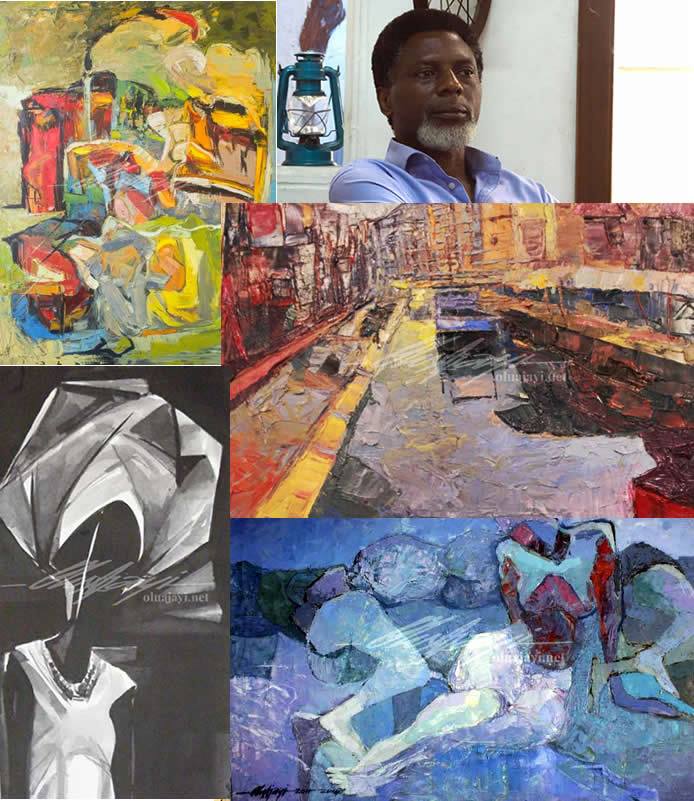
Olu Ajayi is one of Nigeria's most versatile and verifiable artists of his generation, his vast experience as portraitist, realist, experimentalist, cartoonist and constant renewal ideas for expanding...
[Continue reading]
Chuu Krydz Ikwuemesi
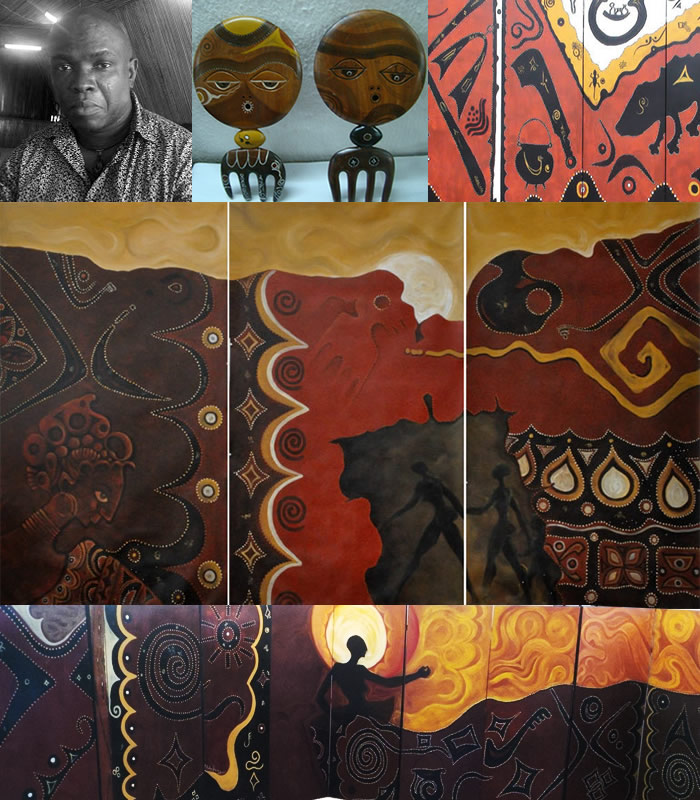
Chuu Krydz Ikwuemesi, painter, art critic, ethno-aesthetician and cultural entrepreneur, has a BA (First Class Honours) in Fine and Applied Arts, an MFA in Painting and a PhD in Art History from the U...
[Continue reading]
Clara Aden

Clara Aden is an illustrator, story board and urban artist. She has been illustrating professionally since 1999 and eventually earned her spot as Assistant Production Manager and Art illustator, Heart...
[Continue reading]
Page 1 of 8 [Next] [Last Page]